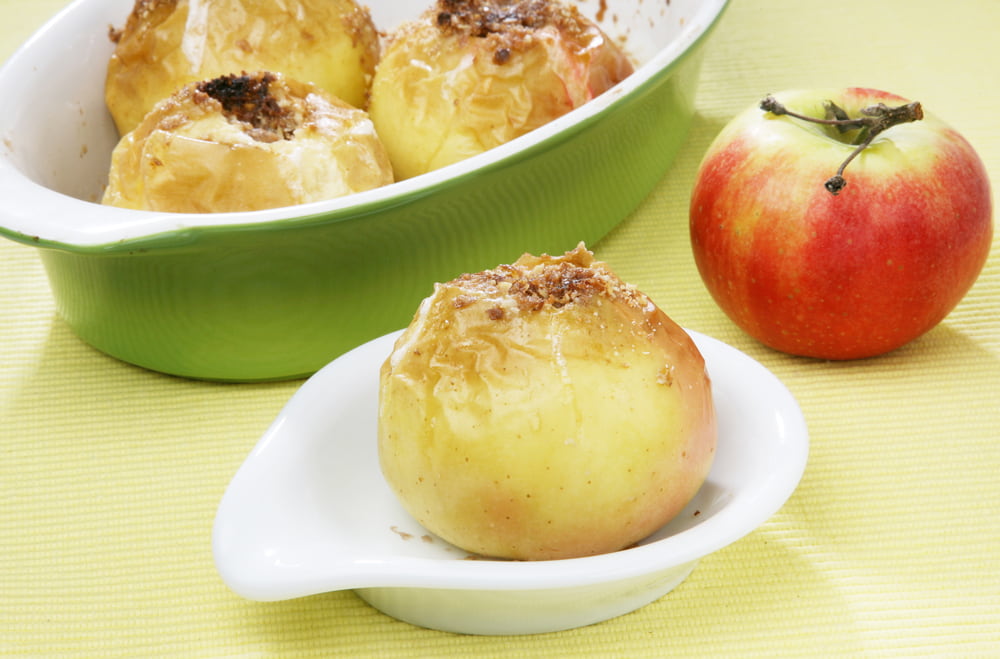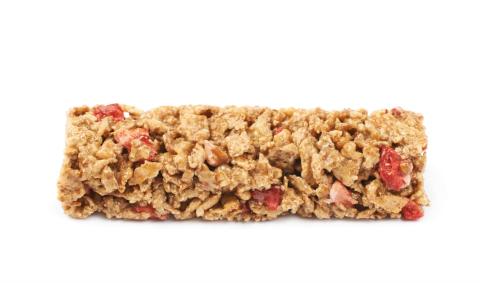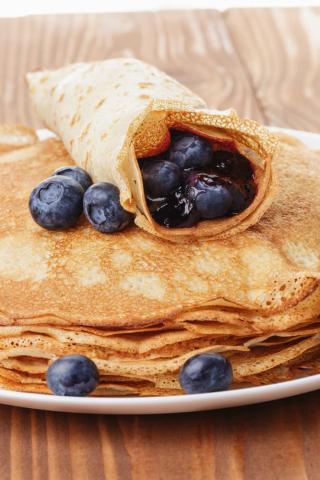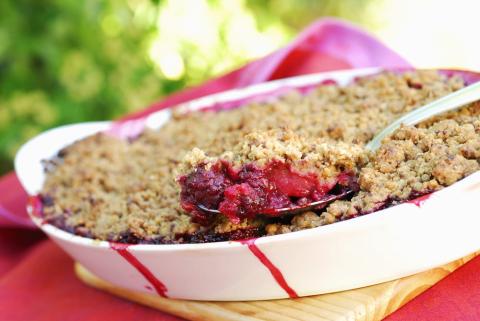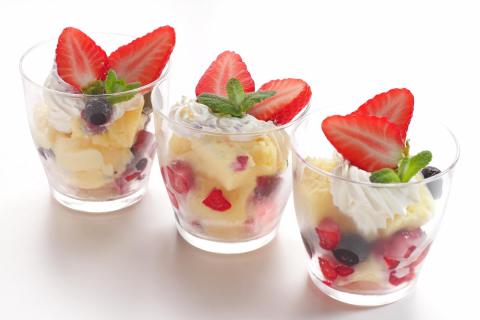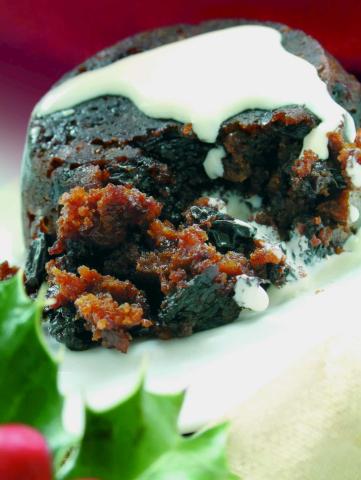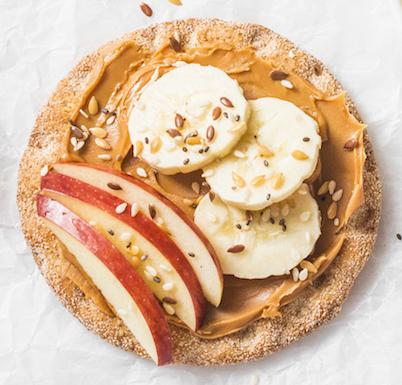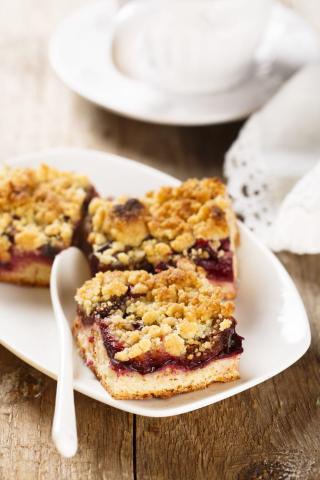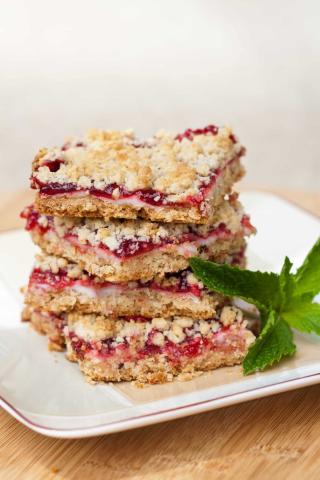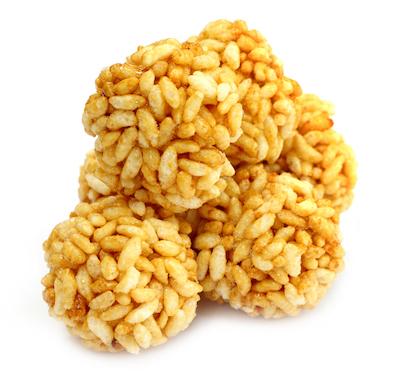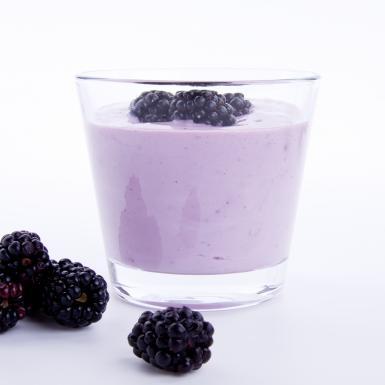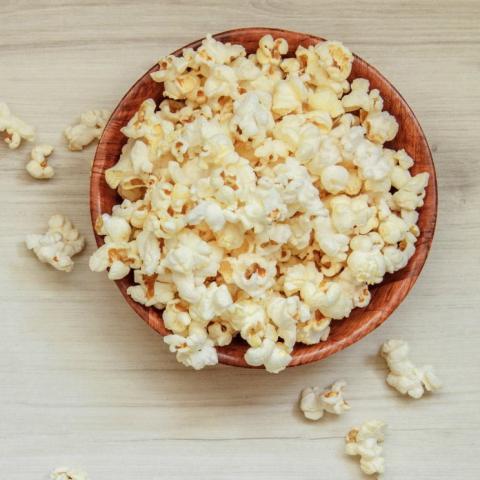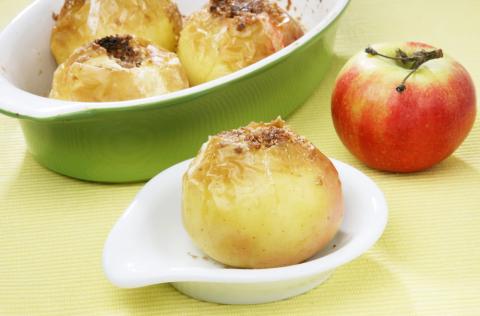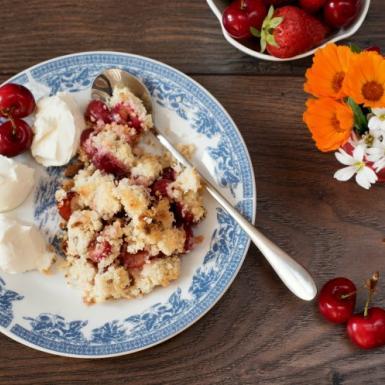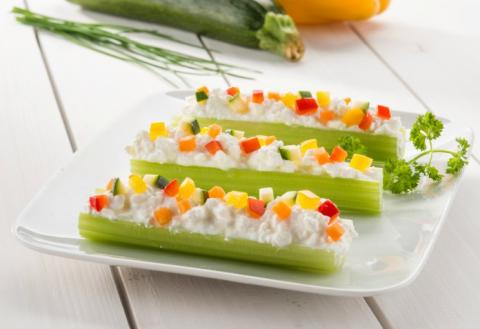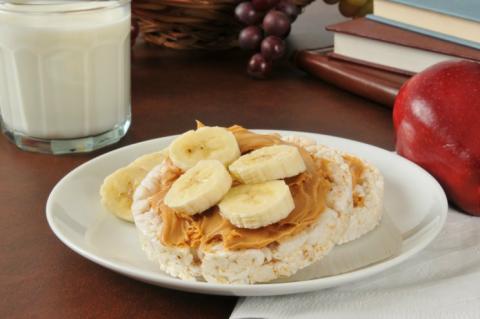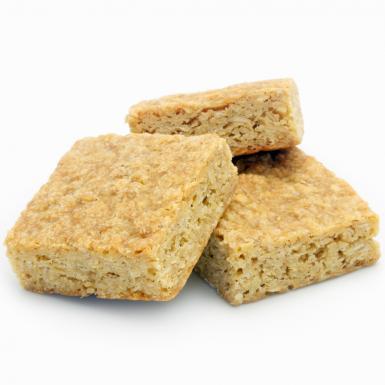- 4 Large sized (760g) Cooking Apples
- 2 Tablespoons (60g) Raisins
- 4 Teaspoons (16g) Sugar
- 1 Teaspoons (3g) Ground Cinnamon
Ingredients
Allergy Disclaimer
Always check the label of each ingredient for allergy warnings.
Method
- Set the oven to 180°C / 160°C fan oven / 350°F / gas mark 4.
- Wash the apples and remove the cores with an apple corer or sharp knife.
- Mix the raisins, sugar and cinnamon together in a small bowl.
- Fill the gaps left by the apple cores with the raisin mixture.
- Place the apples on a baking sheet or tray and bake in the oven for 30-40 minutes. The apples are ready when the side of the apples feel soft when pierced with a sharp knife.
Time Saver Tips
Don't peel the apples.
Cost Saver Tips
You don't have to use cooking apples – normal ones will do and will probably be cheaper.
Tips for Kids
Get children to mix the raisins, sugar and cinnamon mixture.
Nutritional Information
Based on a single serving of 175g (% of an adult's reference intake)
Energy
126 kcals ( 6 %)
533 kJ ( 6 %)
Fat
0.0 g ( 1 %)
Saturates
27.9 g ( %)
Sugar
27.9 g ( 31 %)
Salt
0.0 g ( 1 %)
Detailed nutritional information
| Per 100g | Per 175g serving | |
|---|---|---|
| Energy Kcals | 72 | 126 |
| Energy Kj | 304 | 533 |
| Protein | 0.5 g | 0.9 g |
| Total Fat | g | g |
| Saturated Fat | 0.0 g | 0.0 g |
| Carbohydrates | 16 g | 27.9 g |
| Total Sugars | 16 g | 27.9 g |
| NSP Fibre | 1.7 g | 3 g |
| Sodium | 7 mg | 13 mg |
| Salt | 0.0 g | 0.0 g |
Find out about nutritional labelling
Nutrition labels on the front of packaging
- Most of the big supermarkets and many food manufacturers display nutritional information on the front of pre-packed food.
- Front of pack nutrition labels provide information on the number of grams of fat, saturated fat, sugars and salt and the amount of energy (in kJ and kcal) in a serving or portion of a recipe.
- The labels also include information about reference intakes (expressed as a percentage) which are guidelines about the approximate amount of particular nutrients and energy required for a healthy diet.
- The colour coding tells you at a glance if the food has high (red), medium (amber) or low (green) amounts of fat, saturated fat, sugars and salt.
- The more greens on the label, the healthier the choice
- Amber means neither high nor low, so you can eat foods with all or mostly ambers on the label most of the time.
- Reds on the label means the food is high in that nutrient and these are the foods we should cut down on. Try to eat these foods less often and in small amounts.
Food shopping tips
If you’re trying to decide which product to choose, check to see if there's a nutrition label on the front of the pack. This will help you to quickly assess how your choices stack up. You will often find a mixture of red, amber and green colour coding for the nutrients. So when you're choosing between similar products, try to go for more greens and ambers and fewer reds if you want to make a healthier choice.
 Activities & Play
Activities & Play Behaviour
Behaviour Childcare
Childcare Development & Growing Up
Development & Growing Up Family, Friends & Relationships
Family, Friends & Relationships Feeding Your Baby
Feeding Your Baby Food & Eating
Food & Eating Health & Safety
Health & Safety Mental Health & Wellbeing
Mental Health & Wellbeing Money & Work
Money & Work Online Behaviour & Safety
Online Behaviour & Safety Pregnancy & First Days
Pregnancy & First Days School & Education
School & Education Sleep
Sleep

